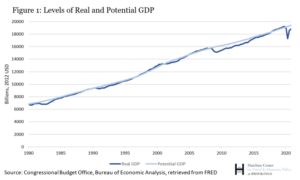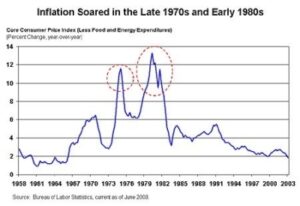This post is part of a series about a discussion (framed as a debate) between Yanis Yaroufakis and Gillian Tett on the subject of saving capitalism. If you found this post via an Internet search, it probably makes sense to start with the first post in the series, the link to which can be found above, and here.
Saving capitalism: A discussion of “what is socialism”
Their conversation then veered into a discussion of what is socialism.
Gillian said that if Yanis believes that competition is valuable, that prices matter, that diversification of different roles and specialist functions matter, then he doesn’t sound very socialist.
Yanis responded by talking about the economist Oscar Lange, and how he considered himself to be a socialist who thought central planning was a terrible idea.
Yanis described how Oscar Lange promoted an idea where workers join companies, get one share, and that share gives them one vote on major decisions. Yanis further promoted markets, in which companies compete, and those companies are owned by the workers who work in the companies.
We would call these workers cooperatives, and they exist in many capitalist countries in the world, including the USA and Canada.
For these firms, “profits” and “wages” become the same, as everyone participates in profit sharing.
When such a company has profits, the employees vote on what to do with them and broadly speaking, there are two options: they’re invested, or they’re handed out to shareholders, who are employees.
Every year or two, various business plans are presented at company-wide meetings and the employee-shareholders vote on them.
For what it’s worth, economist Richard Wolff calls this “democratic capitalism“, which is a characterization that seems reasonable to me.
Per Yanis, while there is competition and markets, this is not capitalism and there is no distinction between wages and profits.
Gillian views such a company-wide meeting as a committee, a characterization Yanis pushes back on.
Gillian challenges Yanis to name one such successful company, and for some reason, he does NOT name the Mondragon Corporation, the largest and most famous workers cooperative in the world.
Instead, he mentions a company he once worked for in Washington State, that is structured this way, has 350 employees, and $1.2B in annual revenues. However, he does not name the company.
Gillian asked why this structure is not more common, and Yanis responds that they’re “being gobbled up”.
Yanis mentioned that workers cooperatives in the USA have worked well since the 19th century in a variety of industries, but in our economic environment based around high levels of corporate consolidation (presumably due to antitrust regulators not preventing it), the big firms absorb the small firms, sometimes just to make them go away, as some Silicon Valley tech giants have been known to do.
Gillians points out they’re really talking about two different things:
- How do companies organize themselves (absentee owner-shareholders vs employee owner-shareholders)?
- Is there a regulatory structure to create a level playing field, which prevents the winners from “taking it all”?
Gillian agrees we need better regulators to prevent winners from taking it all and creating unfair competition.
She further agrees workers cooperatives are valid structures, and she claims “digital transparency” is changing things radically, and may be the saviour of capitalism.
She further believes financial markets provide an efficient way of raising funds for businesses UNLESS you have central banks pumping out oodles of funds as we do right now.
Gillian dislikes what the central banks are doing, while Yanis feels that we’re in too deep, and if the central banks stop printing money, the “whole thing collapses”. I think he’s right.
Yanis feels that going back to a “capitalism that works” is impossible now, and Gillian’s idea that we can is utopian. That the platform companies have become too powerful such that government regulators can’t NOT be “captured” by them.



